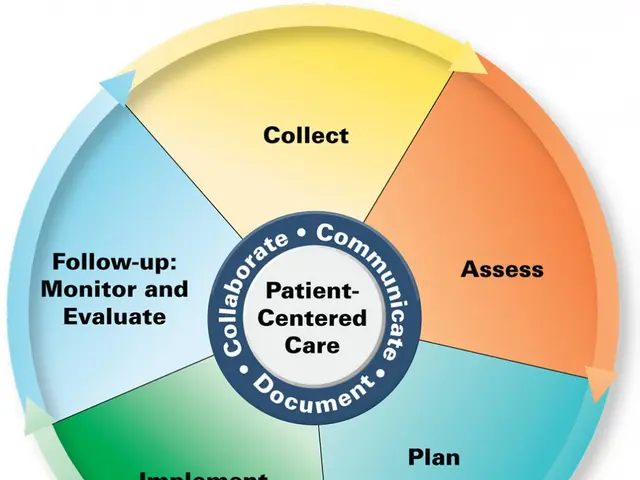Organ Donation: Opt-In vs. Opt-Out: Which Approach Yields More Transplants?
Sparking a global debate, organ donation policies differ extensively across the globe, leaving us pondering whether an 'opt-in' or 'opt-out' system is more effective. A team of researchers from the UK shined a light on this dilemma by examining organ donation policies of 48 countries to find the best approach.
The divide between these systems comes down to one fundamental detail: with an 'opt-in' system, individuals have to actively sign up to a donor registry, while an 'opt-out' system assumes consent unless an individual specifically requests otherwise before their death.
Prof. Eamonn Ferguson, the lead author from the University of Nottingham, UK, recognizes the drawbacks that could arise from both systems:
"Inaction in an opt-in system can lead to individuals who would want to be donors not donating (a false negative). On the other hand, inaction in an opt-out system could potentially result in someone who does not wish to donate becoming a donor (a false positive)."
Did you know that the US relies on an 'opt-in' system? Last year saw 28,000 transplants made possible, with about 79 people receiving organ transplants daily. Unfortunately, around 18 people are still dying each day due to a lack of donated organs.
The researchers from Nottingham, Stirling, and Northumbria universities compared the organ donation policies of 48 countries over 13 years. They found that 'opt-out' countries generally had higher numbers of kidneys donated, which is the organ most in demand for transplants. 'Opt-out' systems also boasted a higher total number of organ transplants.
However, 'opt-in' systems fared better when it came to kidney donations from living donors. Prof. Ferguson regarded this as an intriguing detail that hadn't been reported before, calling for further examination.
The study had its limitations, as it didn't account for differences in the extent of 'opt-out' legislation among countries, and it didn't assess other factors that may impact organ donation.
The team's findings, published in BMC Medicine, suggested that 'opt-out' consent could lead to an increase in deceased donations but a decrease in living donation rates, as well as enhancing the total number of livers and kidneys transplanted.
They encouraged that future decisions regarding policy could be guided by these results, but they could be strengthened further through the systematic collection and public sharing of international organ donation data, such as consent type, procurement procedures, and hospital bed availability.
Prof. Ferguson proposes that future studies should explore the opinions of individuals faced with the decision to opt-in or opt-out by using a mix of surveys and experimental methods.
The authors acknowledged that countries with 'opt-out' consent still struggle with donor shortages. Therefore, an outright policy change is unlikely to solve this problem. Instead, they speculated that modifications to consent legislation or adopting aspects of the "Spanish Model" could be the key to boosting donor rates.
Spain boasts the highest organ donation rate worldwide. Experts attribute their success to a transplant coordination network working on both a local and national scale, along with providing high-quality information about organ donation to the public.
Curious about an alternative solution to address organ shortages? Expert opinions suggest that farming animal organs for human transplants might be worth considering, but only time will tell if this could be a valid solution or if changes to the organ donation policy should take the spotlight instead.
- The study's findings, published in BMC Medicine, indicate that opt-out consent could lead to an increase in deceased donations, but it might also result in a decrease in living donation rates.
- The researchers from Nottingham, Stirling, and Northumbria universities discovered that opt-out countries generally have higher numbers of kidneys donated, which is the organ most in demand for transplants.
- Prof. Ferguson, the lead author from the University of Nottingham, UK, calls for further examination on the higher rate of kidney donations from living donors in opt-in systems.
- The study didn't account for differences in the extent of 'opt-out' legislation among countries, and it didn't assess other factors that may impact organ donation, like medical-conditions or health-and-wellness.





